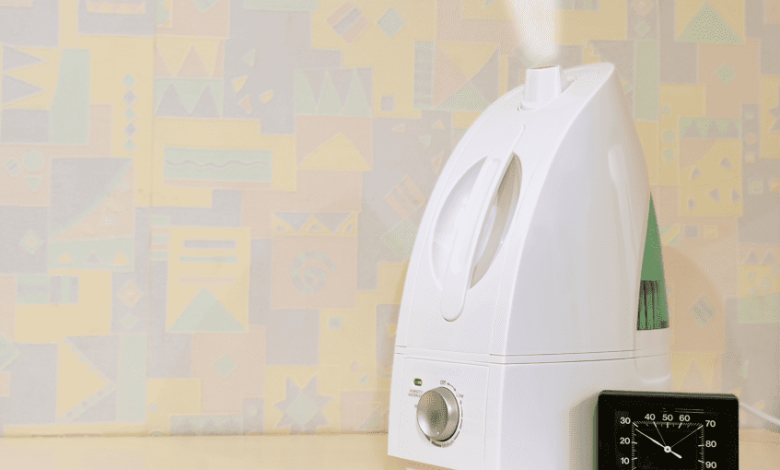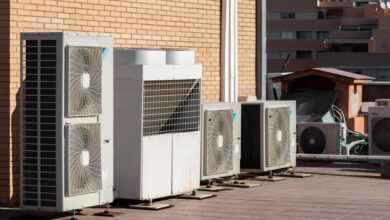Maximizing Comfort: Air Conditioning Solutions for Humid Areas

Living in humid areas presents distinct challenges when maintaining indoor comfort. High humidity can make the air feel warmer, lead to mold growth, and cause discomfort even with air conditioning. However, with the right air conditioning solutions, you can effectively manage humidity while keeping your home cool and comfortable. This article explores practical strategies and tips for optimizing your air conditioning system in humid environments.
How Humidity Affects Comfort
Humidity levels play a crucial role in how we perceive temperature. High humidity can make the air feel much warmer than it is because it hampers our bodies’ ability to evaporate sweat efficiently. This phenomenon is known as the “heat index,” which combines temperature and humidity to reflect the perceived temperature.
Why Control Humidity?
Controlling indoor humidity is essential for several reasons:
- Comfort: Lower humidity levels make the air feel cooler and more comfortable.
- Health: High moisture promotes mold and mildew growth, triggering allergies and respiratory issues.
- Home Maintenance: Excess moisture can damage furniture, walls, and flooring over time.
Types of Air Conditioners
When selecting an air conditioning system for a humid area, it’s essential to consider the following types:
- Central Air Conditioners: These systems effectively cool large areas and often have built-in dehumidification features. They distribute cool air evenly throughout your home via ductwork.
- Ductless Mini-Split Systems: Ideal for homes without existing ductwork, these systems offer installation flexibility and provide efficient cooling and dehumidification for specific zones or rooms.
- Window Units: Window air conditioners are suitable for cooling individual rooms. Some models come with dehumidification settings that help manage humidity levels.
- Portable Air Conditioners: These units are mobile and can be moved from room to room. Many portable air conditioners include dehumidifier functions, making them versatile options for humid climates.
Key Features to Look For
When choosing an air conditioner for a humid environment, consider these key features:
- Dehumidification Capability: Look for units specifically designed to remove moisture from the air. Some models have dedicated dehumidification modes.
- Energy Efficiency: Energy-efficient models reduce electricity consumption, saving you money on utility bills while effectively managing humidity.
- Proper Sizing: Ensure the air conditioner is appropriately sized for your space. An undersized unit will struggle to cool and dehumidify, while an oversized unit may cycle on and off too frequently, leading to inefficient performance.
Enhancing Your Air Conditioner’s Performance
Regular Maintenance
Routine maintenance is critical for optimizing your air conditioner’s performance in humid areas:
- Clean or Replace Filters: Dirty filters restrict airflow, reducing efficiency. Clean or replace filters according to the manufacturer’s recommendations.
- Check Condensate Drains: Ensure that condensate drains are clear of blockages to prevent water damage and mold growth.
- Inspect Coils: Regularly clean the evaporator and condenser coils to maintain efficient heat exchange and dehumidification.
Supplemental Dehumidifiers
Supplementing your air conditioner with a dedicated dehumidifier can be beneficial in areas with extremely high humidity. Dehumidifiers extract excess moisture from the air, complementing your air conditioner’s efforts and enhancing overall comfort.
Smart Thermostats
Integrating a smart thermostat with your air conditioning system can help maintain optimal humidity levels. Smart thermostats allow you to set precise temperature and humidity targets, adjust settings remotely, and monitor indoor conditions in real-time.
Additional Tips for Managing Humidity
Ventilation
Proper ventilation is essential for controlling humidity indoors. Use exhaust fans in bathrooms and kitchens to remove excess moisture generated by activities like showering and cooking. Ensure that your home is well-ventilated to promote air circulation and reduce humidity buildup.
Seal Leaks
Seal any leaks in windows, doors, and ductwork to prevent humid outdoor air from entering your home. Proper insulation helps maintain consistent indoor humidity levels and improves your air conditioner’s efficiency.
Use Ceiling Fans
Ceiling fans can enhance the cooling effect of your air conditioner by promoting air circulation. While they don’t directly lower humidity, they help you feel cooler, allowing you to set your air conditioner to a higher temperature and save energy.
Managing humidity effectively is crucial for maximizing comfort in high-humidity areas. You can create a cool, comfortable living environment by selecting the right air conditioning system, performing regular maintenance, and implementing additional humidity control strategies. Remember, a well-maintained and properly equipped air conditioning system is your best ally in conquering the challenges posed by humid climates. For more information, contact a professional like Todd King’s Heating & Cooling.




